4 ways of a young regional developer that I went through in my student years
I grew up in a depressed urban-type settlement, where most of the guys, having matured, chose the path of confident degradation. With 11 years I was haunted by the fear that I would be the same as this most.
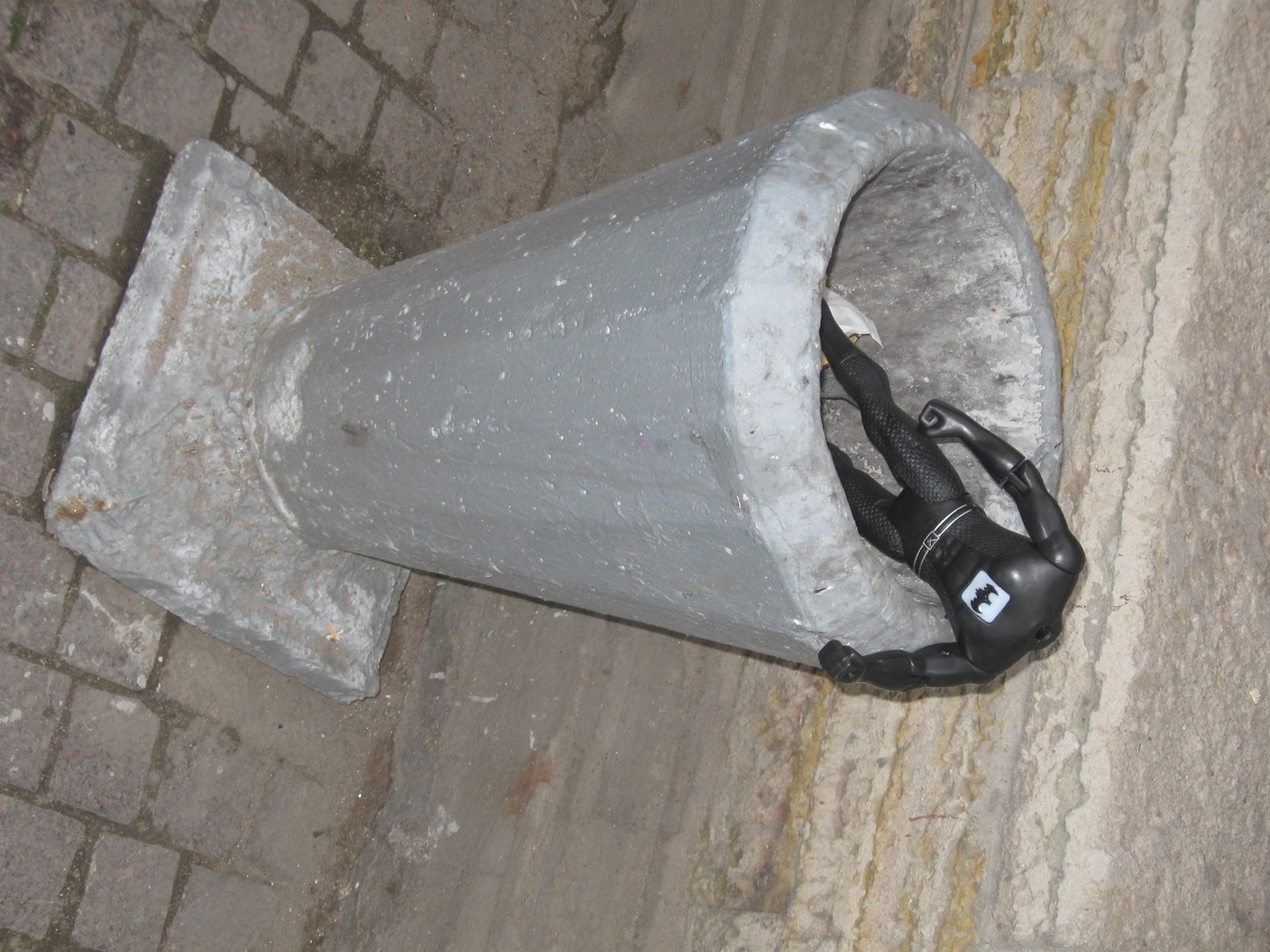
But at the age of 13, my parents bought me a computer, and life began to change: I quickly became a local enikeyshchik, from which adult uncles and aunts asked how to install a “Windows per processor”. At 15 I wondered how to write my game. He asked a cousin who has already become a “respected man” and made websites in Moscow. My brother brought Laforet's textbook on C ++ and said: “Master programming”.
')
Programming became the light at the end of the tunnel for me: I clearly knew that the school was over, and I would leave for the big city to work in good company. But the way up was more winding than I expected.
"With the connection" - and instead of preparing for the exam, I was hacked to Half-Life via the network. In the game I met with Louis - a student two years older, who was already well versed in the “advantages” and began to help me in learning the theory of programming. In general, I played and tried to write something, having forgotten to the exams.
As a result, there was enough points only for an institute in a small town near Rostov.
It quickly became clear that the level of IT training and requirements are low here, and in order to pass any subject, it will be enough to sit above it before handing it over. After the first session, I was in the top 3 in points on the stream. Since then, I have a lot of time to do my projects.
To the credit of the institute, if you wanted to saw something of your own, you were given complete freedom of action and an increased scholarship, comparable to the salary of a JS junior.
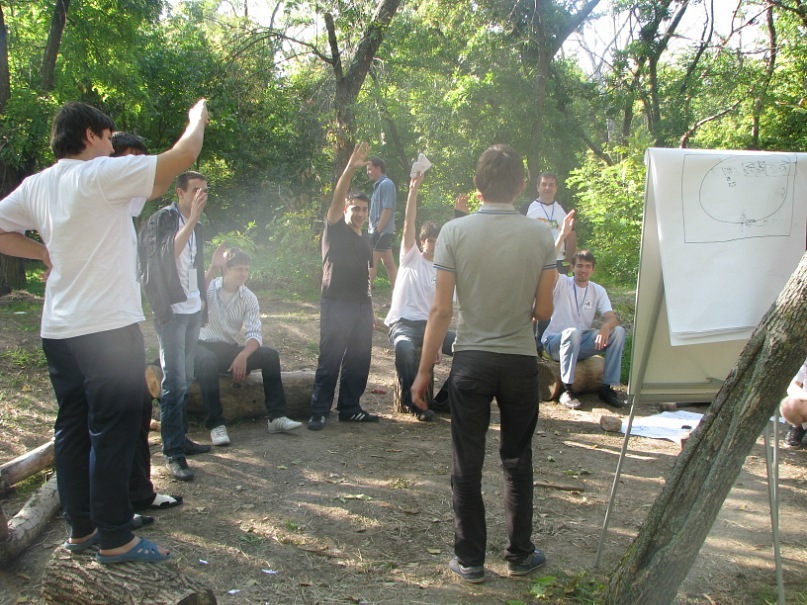
For a start, it was enough, for example, to go to the student-start-up forum (they paid for the road), to tell about their development, to receive a diploma or a letter of thanks. Then you took the presentation of the project (sheet two) and rewrote it on 8 pages for publication in some magazine. I scanned diplomas and articles, filed all this into a weighty daddy and took it to the dean's office. In general, it was necessary to be active and repeat the procedure with a folder every six months.
This gave 25 thousand a month: for the beginning of the 2010s, not bad at all. I advise you to find out if there is something similar in your regional university.
In the first year, Luis and I decided to create our own social network with 3D effects and began to develop an engine on Web-GL that could move and connect pictures.
We had little experience on the web, but I was going to a start-up forum, I had to do some kind of report, and I decided to tell about this venture. After the presentation, an uncle from Moscow caught me and said: “ Your idea is garbage . But if you agree to remake the platform for online shopping, I will give money for server rent and life. ” I first communicated with a person who had access to resources that I had never seen or touched in my life. He threw the word "million" and generally made an impression.
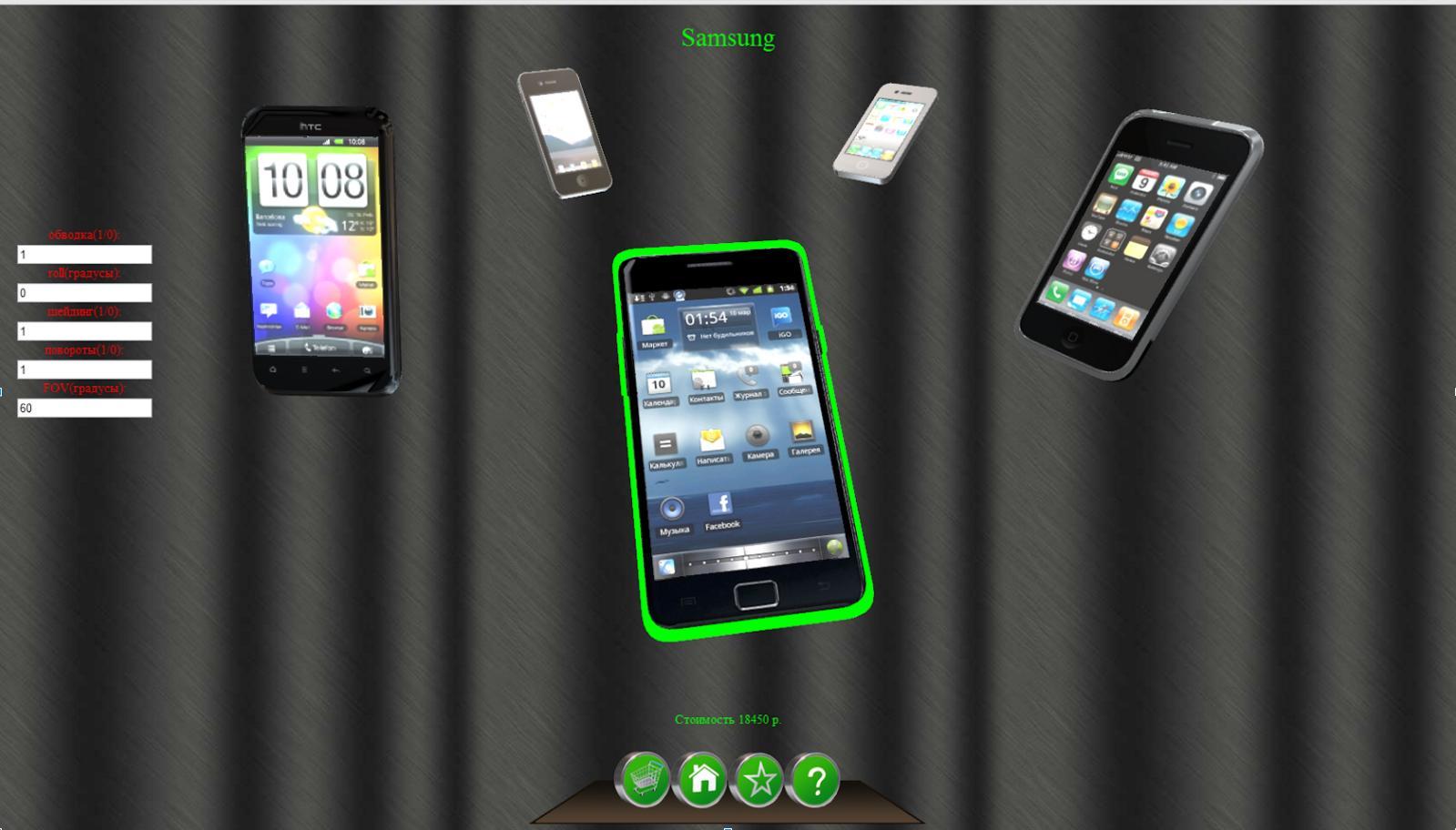
We quickly collected a demo scene with telephones from our blanks, we agreed that we would give the investor 30% - and everything was, in fact, a project of an uncle with money. I drew a couple more of the programming students I knew from the clan in Half-Life: everyone sat in his dorm and sawed some of them - I got the plug-in on Bitrix for browsers, the rest were designed by the designer so that users could assemble the display cases of goods and Paste them to your site through the frame.
We brought the first client - a girl with an online store flash drives. The investor said that as soon as we make a pilot, his people will get involved in factories and shops throughout the country and offer them 3D showcases.
We prepared a demo scene with flash drives, tried to contact the customer, ... and she disappeared. I called her for months, wrote in Skype, but there was no answer. We did what we promised, but there was no one to give. The investor said that he was not interested in all of this, but advised him to contact his St. Petersburg acquaintance. I went to Peter, where I heard: “Let's create a studio and you will be engaged in a regional production, where you sit there, and not try to cut something great, eh?"
The project, which is, in fact, far removed from our goals, did not want to continue at all. The good news was that they wanted nothing from us either. And we gathered [as it seemed] the team.
We liked the idea of “sticking startups” in order to develop in development. We decided to continue, but on our own.

At this time, I spoke with a cousin, who led me into programming. He asked - they say that your team needs to be more effective?
I replied that it would be good to gather everyone in one place, and not huddle in dormitories in different cities. He asked: “How much money do you need for this?” We estimated - 60-70 thousand per month should be enough to pay for hosting, rent an apartment, where we will work, buy food, etc. Until the coveted amount was missing 25 thousand. The brother agreed to transfer them to us, and the rest came from our scholarships.
We started to rent an apartment in Taganrog, where Louis lived then - the most experienced of us. To get scholarships, we went to study at Rostov for 2-3 days a week, and the rest of the days were spent in the “headquarters”: they wrote the code, went to bed, woke up - and wrote again. During the break, boiled eggs in a skillet and crushed cockroaches with slippers.
Then there was the trend of sandbox games, and we decided to make our survivor horror: you wake up in the forest, cut trees, build a house, fence, dig a ditch, fill up water, protect yourself from dangerous mutants. In general, its “Minecraft”, but not cubic, but with smooth transitions and more realistic ground.
We took the old, but free graphics engine Irrlicht, wrote instancing for it, smoothing algorithms, a map generator. They made a world that had to be filled with content - so that everything was warm and lamp. But we didn’t have enough hands to deliver the code and content in the right amount and at the right speed.
So we decided to write a network so that at least we could launch the first players to play against each other. For three months, everything froze - we did not have time for anything but to develop a network architecture. And it split the team: one of the guys, who did not agree with our vision of architecture, sabotaged the project and left, trying to remove his part of the work. Of course, we all restored.
And before the alpha, in which it would be really interesting to play, there was still a way of approximately infinity. We understood that we have no money or strength to continue the project.
At this time, Louis began to look for an option where to go to graduate school, and I suggested that he transfer to my institute - they just established a laboratory of bionic intelligent systems. We were able to get there with the rest of the team.
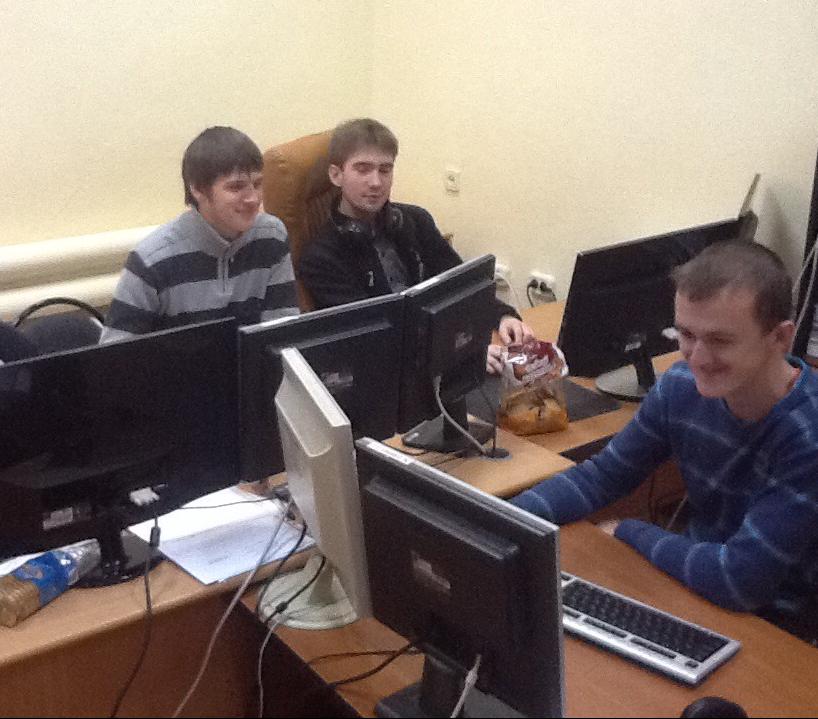
In the laboratory, we were engaged in physical simulations. To revive the results of our research, we took the physics engine and conducted experiments with neural networks and genetic algorithms.
Quickly repeating simple examples from books, they began to make a large abstract library with fashionable HTM (Hierarchical temporal memory) algorithms based on books and articles by Jeff Hawkins. From this point on, we began to publish more or less serious and meaningful articles, to show real simulations and visualizations, and we could relatively easily win grants of 250-2000K for research.
And here we were met by the bureaucratic apparatus in all its glory. “Thanks to” him, the amount of the real grant melted almost twice, and instead of working we had to make endless reports on our turbulent activity.
We have improved working conditions - after three “man-places” in the computer class we royally occupied a room of 70 squares with four-meter ceilings. But then stories like “the day after our miner’s day began — and you take computers from the lab and carry achievements”.
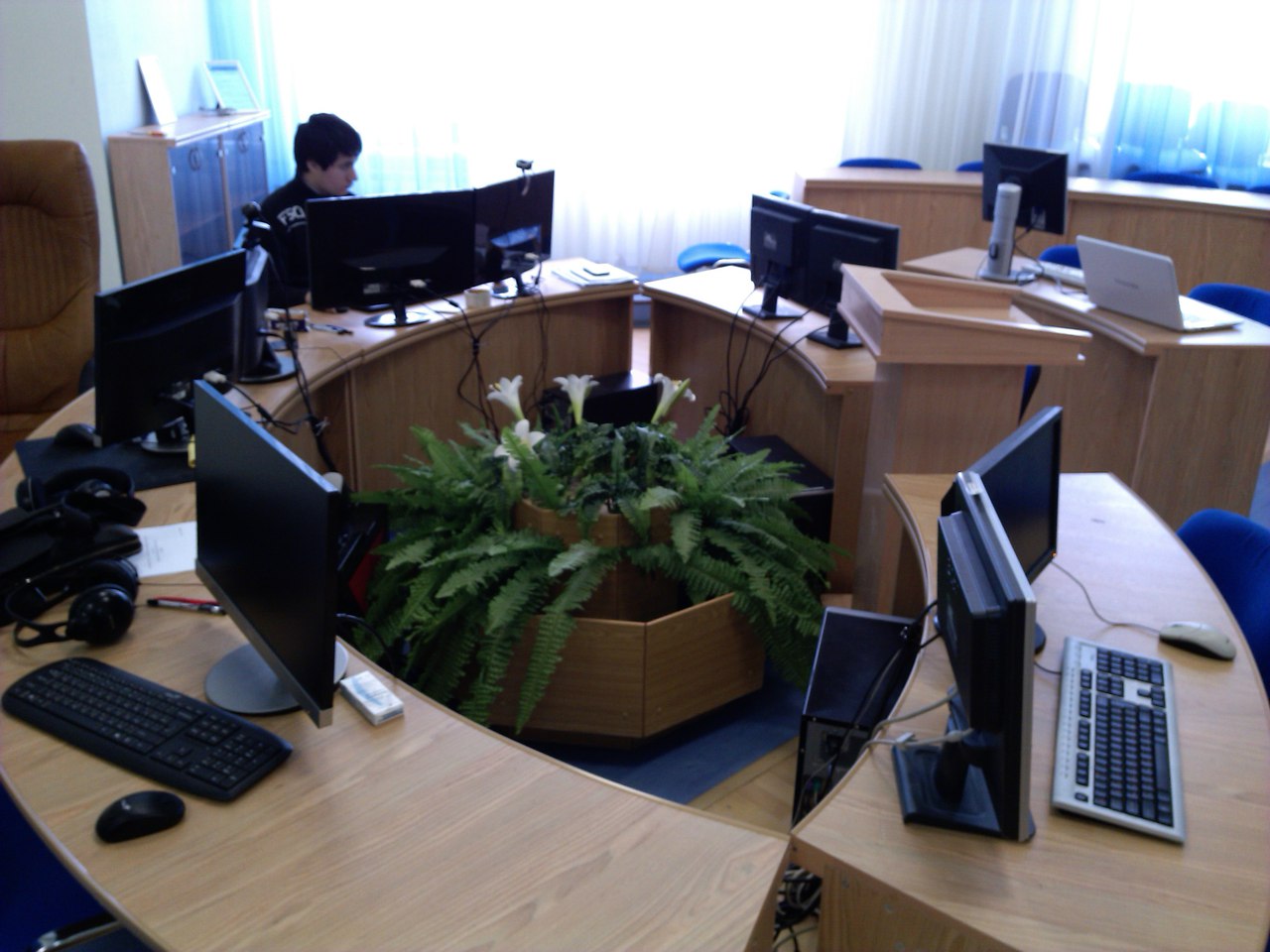
We were at a crossroads. On the one hand, I wanted to learn how to motivate our neural network: we know how to train it to recognize something, and a very big problem is to teach it to want something. On the other hand, being in a situation of "exhibits in a beautiful room", even human native neural networks usually have no motivation to work.
In the end, we decided that rather than serving a few days a week for some useless garbage, it would be better to go in for normal commercial development: it was time to get through to Rostov, the nearest “big city with IT companies” from youth plans.
While I was looking for work in Rostov, I met Pasha, one of the teammates at uCoz, and asked what was needed to get to them. He replied that there was a demand for a client-side, threw off examples of assignments for me - and I sat down to study the world of web technologies. The way of learning “to take a new task and build up knowledge as it is solved” was familiar and clear to me.
A couple of months later, a message from Pasha fell on Skype: “Remember, you wanted to visit us? We are launching a website builder for small businesses, we need to impose templates. Ready to show what you learned? “I said yes.
This was my first interview experience. And when they suddenly asked me: “Why do you want to work with us?” - I honestly blurted out: “I know that I will work with you. Because I already coped with the test task “.
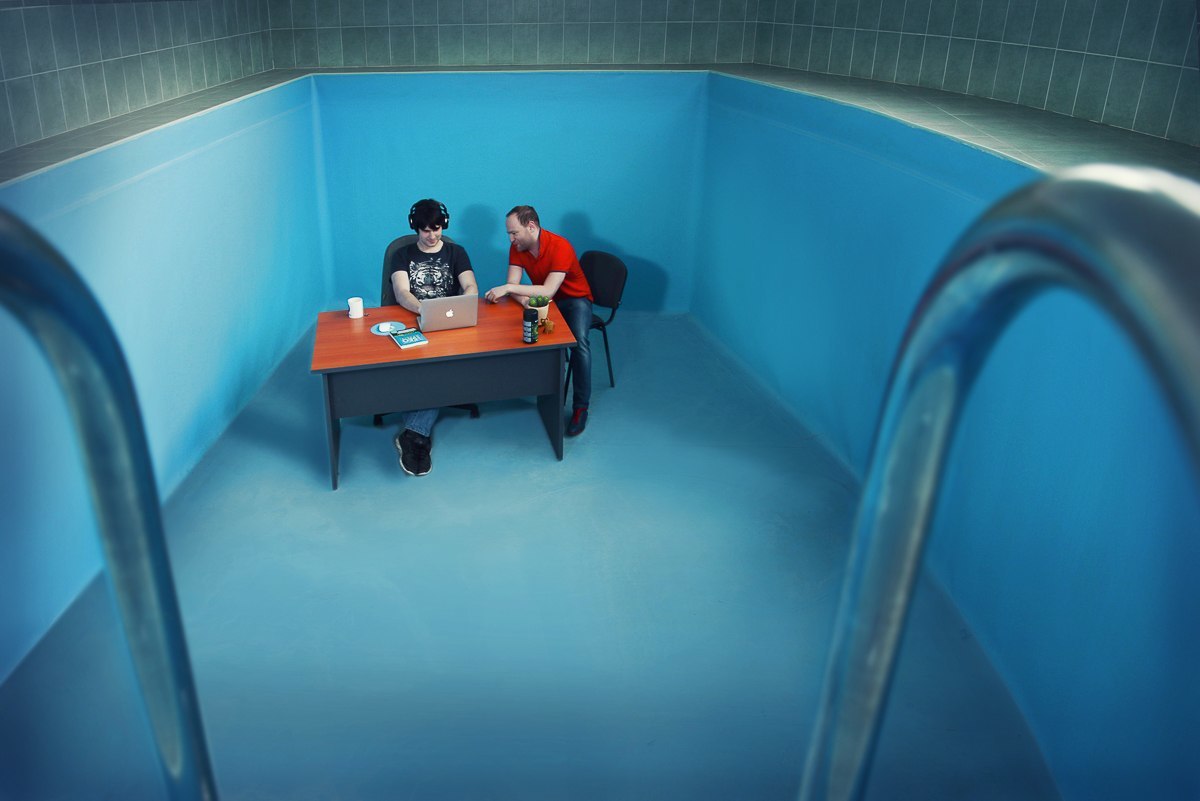
At the end of the interview, I did not forget to tell that I have a sensible programmer friend. I was told that programmers are needed. Luis arrived, he was interviewed, we rented an apartment - and we moved to Rostov.
And after six months, I got people into submission(which is very appealing to my ego) .
The story was fun. In all the projects where I participated, it was like this - all the guys are introverts, and I am an extrovert. It also happened: the team expanded, all the guys loved their work, even programmed better than me, but, roughly speaking, did not know what to program. A mediator between managers and new guys was needed; my experience with teams was useful here. With these guys, I realized the difference between the community of people who were simply gathered by location or sign (as our clan of gamer coders), and the community of those who fell into their place, because they deserve it.
We were able to improve the quality of production templates, described and launched business processes that allow us to declare what and how we are doing. Now I look at user sites and I know that I am a part of it all. It's nice to know.
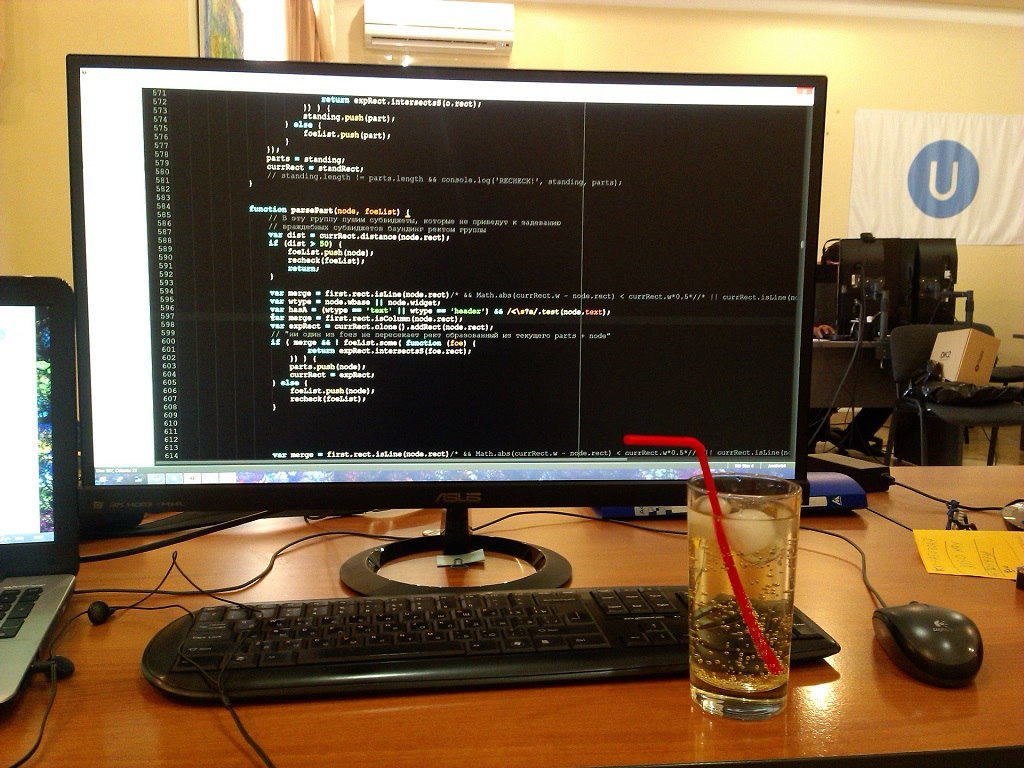
I hope the article will be useful to those who want to escape from a small town. Unite - so higher chances to get through. Search for connections and use them. Use time wisely - develop yourself as much as possible. If you are doing your project, try not to tie everything to specific people (although in student startups almost always and everything is irreplaceable). Look for the problem of the soul - do not rush to the same graduate school, because it seems so easy.
And most importantly - be afraid. Until recently, I was afraid that I would not take place in the industry, and this fear drove me forward.
I convinced myself that it was better to get a bunch of failures and survive what did not work, did not compile, did not like, did not work, than come to the conclusion that the investor of our first project advised before parting: “Buy plastic garbage in China for $ 1, and then sell for $ 10 at home. Profit ".
And how did you get into people?

But at the age of 13, my parents bought me a computer, and life began to change: I quickly became a local enikeyshchik, from which adult uncles and aunts asked how to install a “Windows per processor”. At 15 I wondered how to write my game. He asked a cousin who has already become a “respected man” and made websites in Moscow. My brother brought Laforet's textbook on C ++ and said: “Master programming”.
')
Programming became the light at the end of the tunnel for me: I clearly knew that the school was over, and I would leave for the big city to work in good company. But the way up was more winding than I expected.
"With the connection" - and instead of preparing for the exam, I was hacked to Half-Life via the network. In the game I met with Louis - a student two years older, who was already well versed in the “advantages” and began to help me in learning the theory of programming. In general, I played and tried to write something, having forgotten to the exams.
As a result, there was enough points only for an institute in a small town near Rostov.
Preface: how to use the university, if you are not particularly taught anything
It quickly became clear that the level of IT training and requirements are low here, and in order to pass any subject, it will be enough to sit above it before handing it over. After the first session, I was in the top 3 in points on the stream. Since then, I have a lot of time to do my projects.
To the credit of the institute, if you wanted to saw something of your own, you were given complete freedom of action and an increased scholarship, comparable to the salary of a JS junior.

For a start, it was enough, for example, to go to the student-start-up forum (they paid for the road), to tell about their development, to receive a diploma or a letter of thanks. Then you took the presentation of the project (sheet two) and rewrote it on 8 pages for publication in some magazine. I scanned diplomas and articles, filed all this into a weighty daddy and took it to the dean's office. In general, it was necessary to be active and repeat the procedure with a folder every six months.
This gave 25 thousand a month: for the beginning of the 2010s, not bad at all. I advise you to find out if there is something similar in your regional university.
The first path: "you are not Pavel Durov"
In the first year, Luis and I decided to create our own social network with 3D effects and began to develop an engine on Web-GL that could move and connect pictures.
We had little experience on the web, but I was going to a start-up forum, I had to do some kind of report, and I decided to tell about this venture. After the presentation, an uncle from Moscow caught me and said: “ Your idea is garbage . But if you agree to remake the platform for online shopping, I will give money for server rent and life. ” I first communicated with a person who had access to resources that I had never seen or touched in my life. He threw the word "million" and generally made an impression.

We quickly collected a demo scene with telephones from our blanks, we agreed that we would give the investor 30% - and everything was, in fact, a project of an uncle with money. I drew a couple more of the programming students I knew from the clan in Half-Life: everyone sat in his dorm and sawed some of them - I got the plug-in on Bitrix for browsers, the rest were designed by the designer so that users could assemble the display cases of goods and Paste them to your site through the frame.
We brought the first client - a girl with an online store flash drives. The investor said that as soon as we make a pilot, his people will get involved in factories and shops throughout the country and offer them 3D showcases.
We prepared a demo scene with flash drives, tried to contact the customer, ... and she disappeared. I called her for months, wrote in Skype, but there was no answer. We did what we promised, but there was no one to give. The investor said that he was not interested in all of this, but advised him to contact his St. Petersburg acquaintance. I went to Peter, where I heard: “Let's create a studio and you will be engaged in a regional production, where you sit there, and not try to cut something great, eh?"
The project, which is, in fact, far removed from our goals, did not want to continue at all. The good news was that they wanted nothing from us either. And we gathered [as it seemed] the team.
The second way: the four of us to the layout maker's salary
We liked the idea of “sticking startups” in order to develop in development. We decided to continue, but on our own.

At this time, I spoke with a cousin, who led me into programming. He asked - they say that your team needs to be more effective?
I replied that it would be good to gather everyone in one place, and not huddle in dormitories in different cities. He asked: “How much money do you need for this?” We estimated - 60-70 thousand per month should be enough to pay for hosting, rent an apartment, where we will work, buy food, etc. Until the coveted amount was missing 25 thousand. The brother agreed to transfer them to us, and the rest came from our scholarships.
We started to rent an apartment in Taganrog, where Louis lived then - the most experienced of us. To get scholarships, we went to study at Rostov for 2-3 days a week, and the rest of the days were spent in the “headquarters”: they wrote the code, went to bed, woke up - and wrote again. During the break, boiled eggs in a skillet and crushed cockroaches with slippers.
Then there was the trend of sandbox games, and we decided to make our survivor horror: you wake up in the forest, cut trees, build a house, fence, dig a ditch, fill up water, protect yourself from dangerous mutants. In general, its “Minecraft”, but not cubic, but with smooth transitions and more realistic ground.
We took the old, but free graphics engine Irrlicht, wrote instancing for it, smoothing algorithms, a map generator. They made a world that had to be filled with content - so that everything was warm and lamp. But we didn’t have enough hands to deliver the code and content in the right amount and at the right speed.
So we decided to write a network so that at least we could launch the first players to play against each other. For three months, everything froze - we did not have time for anything but to develop a network architecture. And it split the team: one of the guys, who did not agree with our vision of architecture, sabotaged the project and left, trying to remove his part of the work. Of course, we all restored.
And before the alpha, in which it would be really interesting to play, there was still a way of approximately infinity. We understood that we have no money or strength to continue the project.
The third way: fundamental scientific imitation of activity
At this time, Louis began to look for an option where to go to graduate school, and I suggested that he transfer to my institute - they just established a laboratory of bionic intelligent systems. We were able to get there with the rest of the team.

In the laboratory, we were engaged in physical simulations. To revive the results of our research, we took the physics engine and conducted experiments with neural networks and genetic algorithms.
Quickly repeating simple examples from books, they began to make a large abstract library with fashionable HTM (Hierarchical temporal memory) algorithms based on books and articles by Jeff Hawkins. From this point on, we began to publish more or less serious and meaningful articles, to show real simulations and visualizations, and we could relatively easily win grants of 250-2000K for research.
And here we were met by the bureaucratic apparatus in all its glory. “Thanks to” him, the amount of the real grant melted almost twice, and instead of working we had to make endless reports on our turbulent activity.
We have improved working conditions - after three “man-places” in the computer class we royally occupied a room of 70 squares with four-meter ceilings. But then stories like “the day after our miner’s day began — and you take computers from the lab and carry achievements”.

We were at a crossroads. On the one hand, I wanted to learn how to motivate our neural network: we know how to train it to recognize something, and a very big problem is to teach it to want something. On the other hand, being in a situation of "exhibits in a beautiful room", even human native neural networks usually have no motivation to work.
In the end, we decided that rather than serving a few days a week for some useless garbage, it would be better to go in for normal commercial development: it was time to get through to Rostov, the nearest “big city with IT companies” from youth plans.
Fourth Way: Real Production at a Local IT Company
While I was looking for work in Rostov, I met Pasha, one of the teammates at uCoz, and asked what was needed to get to them. He replied that there was a demand for a client-side, threw off examples of assignments for me - and I sat down to study the world of web technologies. The way of learning “to take a new task and build up knowledge as it is solved” was familiar and clear to me.
A couple of months later, a message from Pasha fell on Skype: “Remember, you wanted to visit us? We are launching a website builder for small businesses, we need to impose templates. Ready to show what you learned? “I said yes.
This was my first interview experience. And when they suddenly asked me: “Why do you want to work with us?” - I honestly blurted out: “I know that I will work with you. Because I already coped with the test task “.

At the end of the interview, I did not forget to tell that I have a sensible programmer friend. I was told that programmers are needed. Luis arrived, he was interviewed, we rented an apartment - and we moved to Rostov.
And after six months, I got people into submission
The story was fun. In all the projects where I participated, it was like this - all the guys are introverts, and I am an extrovert. It also happened: the team expanded, all the guys loved their work, even programmed better than me, but, roughly speaking, did not know what to program. A mediator between managers and new guys was needed; my experience with teams was useful here. With these guys, I realized the difference between the community of people who were simply gathered by location or sign (as our clan of gamer coders), and the community of those who fell into their place, because they deserve it.
We were able to improve the quality of production templates, described and launched business processes that allow us to declare what and how we are doing. Now I look at user sites and I know that I am a part of it all. It's nice to know.

Afterword
I hope the article will be useful to those who want to escape from a small town. Unite - so higher chances to get through. Search for connections and use them. Use time wisely - develop yourself as much as possible. If you are doing your project, try not to tie everything to specific people (although in student startups almost always and everything is irreplaceable). Look for the problem of the soul - do not rush to the same graduate school, because it seems so easy.
And most importantly - be afraid. Until recently, I was afraid that I would not take place in the industry, and this fear drove me forward.
I convinced myself that it was better to get a bunch of failures and survive what did not work, did not compile, did not like, did not work, than come to the conclusion that the investor of our first project advised before parting: “Buy plastic garbage in China for $ 1, and then sell for $ 10 at home. Profit ".
And how did you get into people?
Source: https://habr.com/ru/post/301056/
All Articles